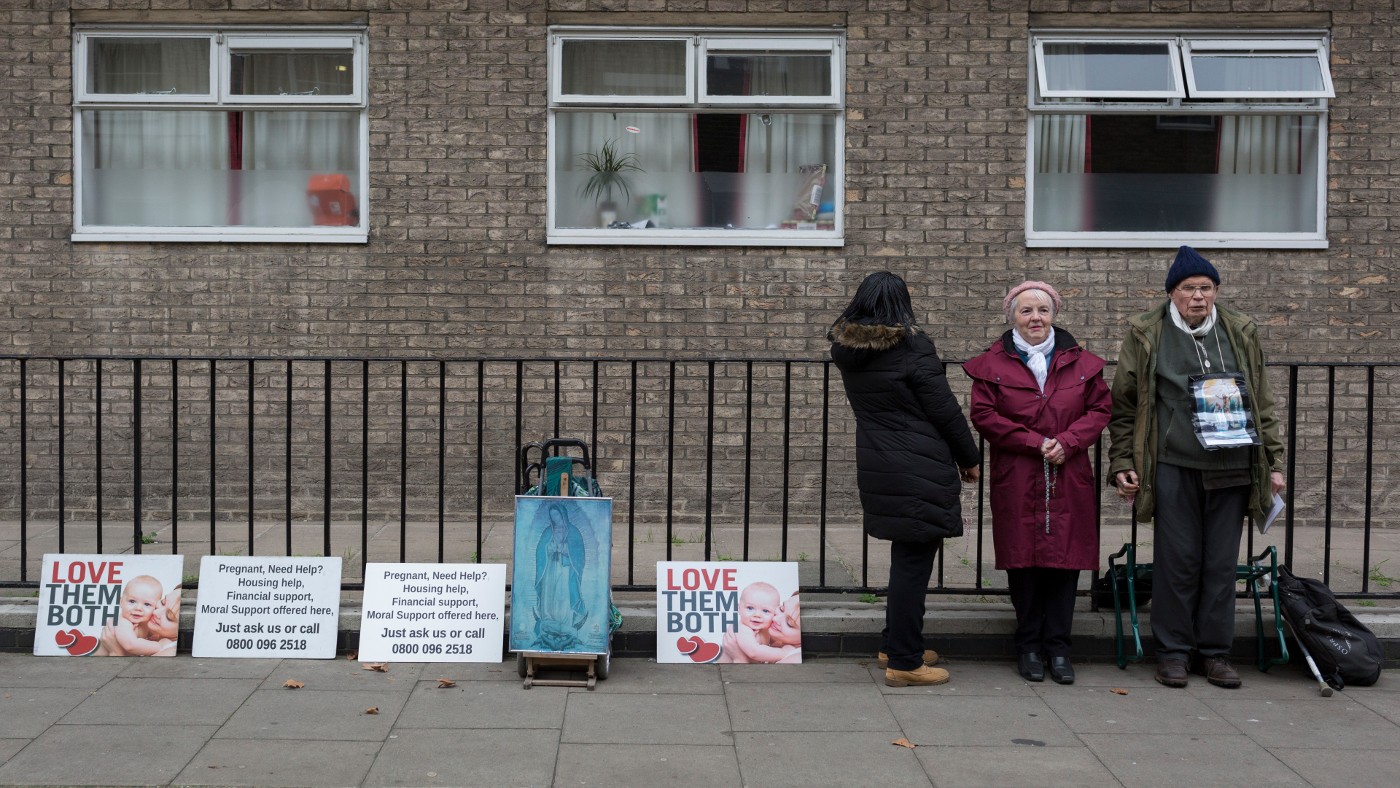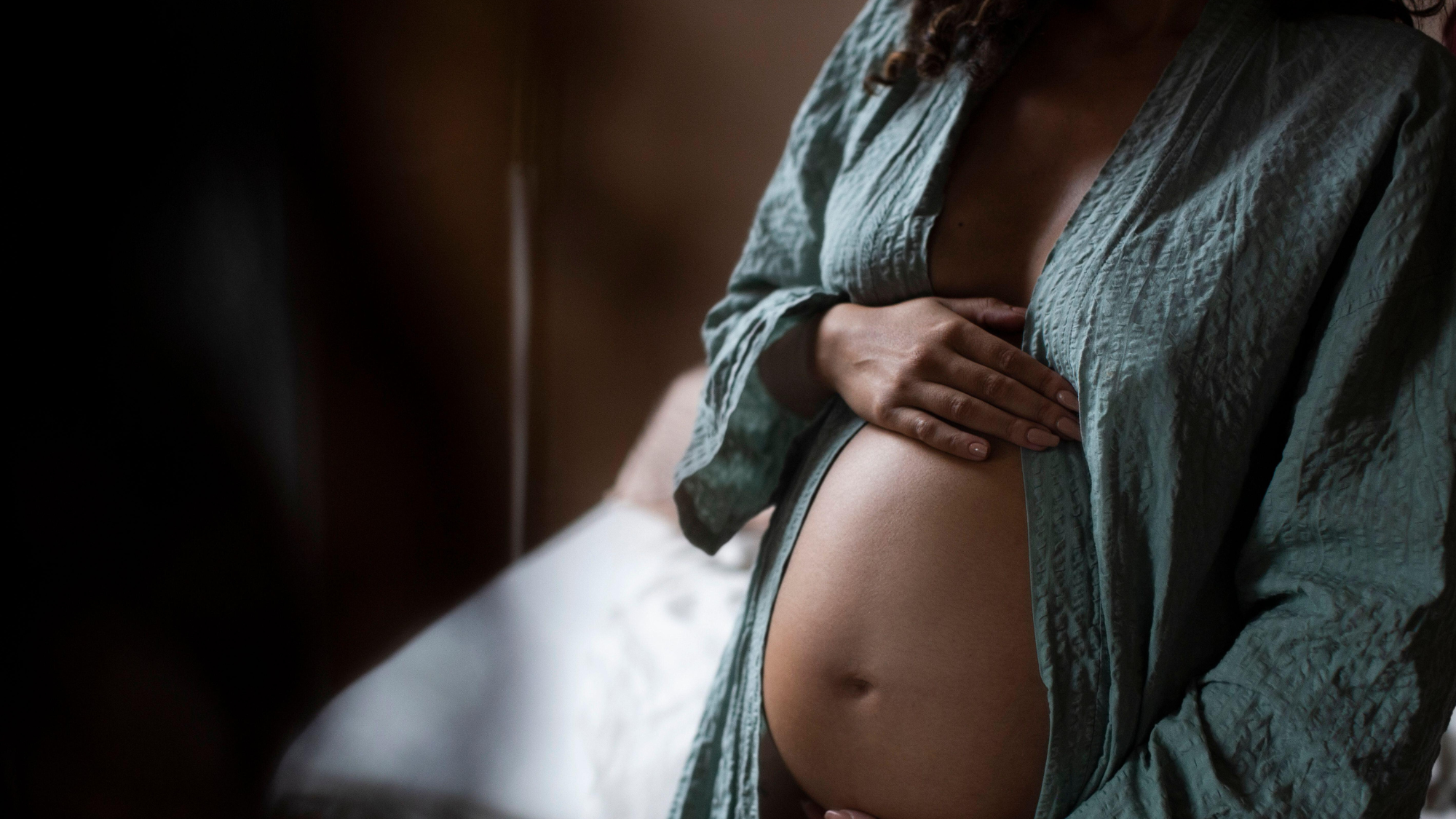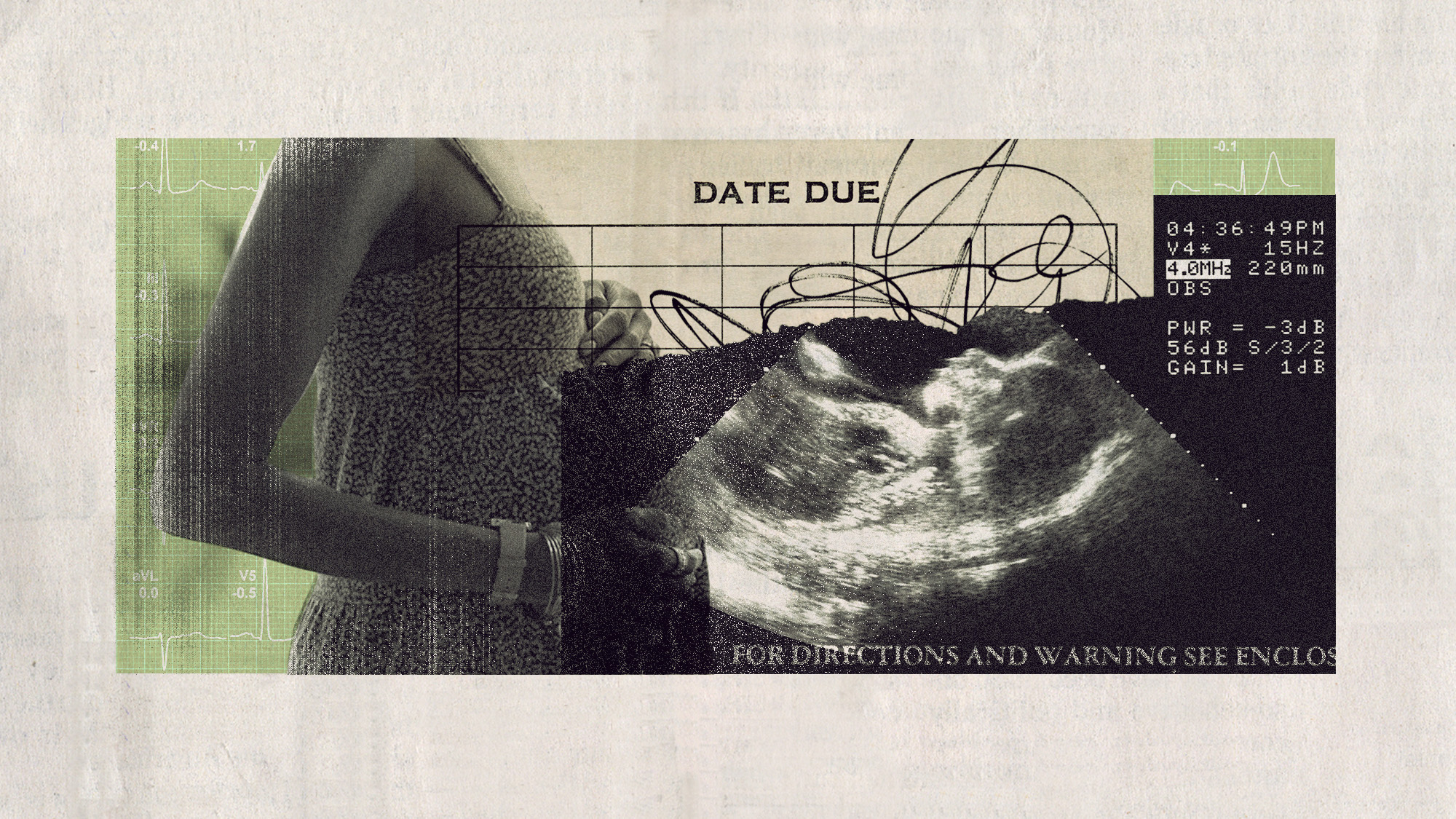The debate around abortion buffer zones
Vote to block protests outside clinics has proven as divisive as the issue of abortion itself

A free daily email with the biggest news stories of the day – and the best features from TheWeek.com
You are now subscribed
Your newsletter sign-up was successful
MPs have backed plans to enforce 150-metre buffer zones around abortion clinics in England and Wales.
Anti-abortion protests outside clinics have seen activists “displaying graphic images of foetuses, filming women and staff members” and “singing hymns”, said the BBC.
Buffer zones would stop anti-abortion protesters or any other types of demonstrators standing outside the clinic or hospital or in the near vicinity. Harassing, obstructing or interfering with any woman attending an abortion clinic would become a criminal offence, with punishments of up to six months in prison.
The Week
Escape your echo chamber. Get the facts behind the news, plus analysis from multiple perspectives.

Sign up for The Week's Free Newsletters
From our morning news briefing to a weekly Good News Newsletter, get the best of The Week delivered directly to your inbox.
From our morning news briefing to a weekly Good News Newsletter, get the best of The Week delivered directly to your inbox.
However, like the very issue of abortion itself, the plan has proven deeply controversial.
‘Hideously overdue’
The Labour MP Stella Creasy, who is behind the new rules contained in an amendment to the government’s public order bill, said buffer zones protect “women accessing a very specific type of healthcare”.
Creasy added: “It does not stop free speech on abortion. It does not stop people protesting. It simply says you shouldn’t have the right to do this in the face of somebody – and very often these people are right up in front of people.”
Staff who work in clinics have “reported being harassed by those who do not believe women should have the right to choose what happens to their own bodies”, wrote Jennifer Savin in Cosmopolitan, adding that the buffer zone plan is “frankly hideously overdue”.
A free daily email with the biggest news stories of the day – and the best features from TheWeek.com
Clare Murphy, chief executive of the British Pregnancy Advisory Service, said the leading abortion provider was “delighted” politicians had voted to “protect women, protect healthcare staff, and establish buffer zones”.
Pro-life protesters have attempted “to deter or prevent women from accessing abortion care by displaying graphic images of foetuses, calling women ‘murderers’, and hanging baby clothing around clinic entrances, causing women significant distress”, she told The Independent.
Louise McCudden, of MSI Reproductive Choices’ UK, another abortion provider, agreed, saying the MPs’ vote – which was passed by 297 to 110 – constituted “a huge victory for reproductive rights”.
‘Sledgehammer to civil liberties’
However, said Right To Life News, “hundreds of women” have been “helped” outside abortion clinics by “pro-life volunteers” who “made it clear to them that they had another option other than going through with the abortion”.
If the bill passes into law, the group believe there is the potential that the “vital practical support” provided by volunteers outside abortion clinics will be “removed for women”.
Writing for The Critic, Alina Dulgheriu recalled when she was “single, abandoned, facing unemployment” and “terrified” when she discovered she was pregnant.
“The day that I turned up to my abortion appointment, a volunteer outside the clinic gently gave me a leaflet,” she wrote, and had this not happened “my beautiful daughter would not be here today”.
Other women who would “rather keep their babies than have abortions” will be denied “valuable assistance” if the planned laws “turn anyone who volunteers advice into criminals”, she added.
Writing for The Times, Anthony Horan, director of the Catholic Parliamentary Office, argued that the proposal “takes a sledgehammer to our civil liberties”, including “the right to freedom of expression and freedom of assembly, as well as the right to freedom of thought, conscience and religion”.
Chas Newkey-Burden has been part of The Week Digital team for more than a decade and a journalist for 25 years, starting out on the irreverent football weekly 90 Minutes, before moving to lifestyle magazines Loaded and Attitude. He was a columnist for The Big Issue and landed a world exclusive with David Beckham that became the weekly magazine’s bestselling issue. He now writes regularly for The Guardian, The Telegraph, The Independent, Metro, FourFourTwo and the i new site. He is also the author of a number of non-fiction books.
-
 Quentin Deranque: a student’s death energizes the French far right
Quentin Deranque: a student’s death energizes the French far rightIN THE SPOTLIGHT Reactions to the violent killing of an ultra-conservative activist offer a glimpse at the culture wars roiling France ahead of next year’s elections.
-
 Secured vs. unsecured loans: how do they differ and which is better?
Secured vs. unsecured loans: how do they differ and which is better?the explainer They are distinguished by the level of risk and the inclusion of collateral
-
 ‘States that set ambitious climate targets are already feeling the tension’
‘States that set ambitious climate targets are already feeling the tension’Instant Opinion Opinion, comment and editorials of the day
-
 ‘Zero trimester’ influencers believe a healthy pregnancy is a choice
‘Zero trimester’ influencers believe a healthy pregnancy is a choiceThe Explainer Is prepping during the preconception period the answer for hopeful couples?
-
 Mixed nuts: RFK Jr.’s new nutrition guidelines receive uneven reviews
Mixed nuts: RFK Jr.’s new nutrition guidelines receive uneven reviewsTalking Points The guidelines emphasize red meat and full-fat dairy
-
 Stopping GLP-1s raises complicated questions for pregnancy
Stopping GLP-1s raises complicated questions for pregnancyThe Explainer Stopping the medication could be risky during pregnancy, but there is more to the story to be uncovered
-
 Choline: the ‘under-appreciated’ nutrient
Choline: the ‘under-appreciated’ nutrientThe Explainer Studies link choline levels to accelerated ageing, anxiety, memory function and more
-
 The controversial Free Birth Society
The controversial Free Birth SocietyThe Explainer Influencers are encouraging pregnant women to give birth without midwife care – at potentially tragic cost
-
 The rise in unregulated pregnancy scans
The rise in unregulated pregnancy scansUnder The Radar Industry body says some private scan clinics offer dangerously misleading advice
-
 FDA OKs generic abortion pill, riling the right
FDA OKs generic abortion pill, riling the rightSpeed Read The drug in question is a generic version of mifepristone, used to carry out two-thirds of US abortions
-
 Cytomegalovirus can cause permanent birth defects
Cytomegalovirus can cause permanent birth defectsThe Explainer The virus can show no symptoms in adults